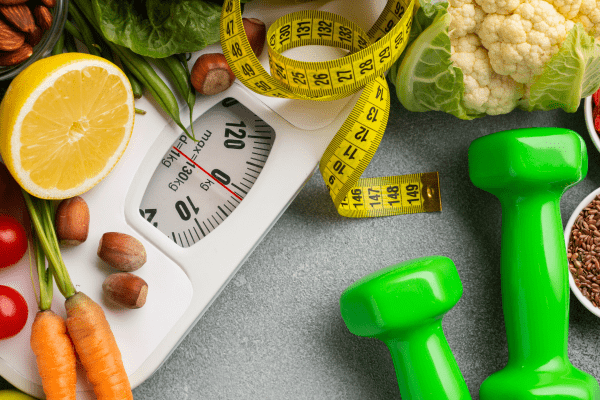
Belly fat, also known as abdominal or visceral fat, refers to the fat that accumulates around the abdominal area, particularly in the midsection. It is different from subcutaneous fat, which lies just beneath the skin, and visceral fat, which surrounds the internal organs.
Having belly fat is considered to be more dangerous than any other fat. Fat lying deep within the abdomen is more perilous than the fat you can pinch with your fingers.
Belly fat is considered significant because it is associated with various health risks, including:
1) Exercise/ Keep moving:
Exercise can help reduce your waist circumference. Even if you don’t lose weight, you lose visceral belly fat and gain muscle mass. Engage in at least 30 minutes of moderate-intensity activity most days, such as brisk walking or bicycling at a casual pace and create opportunities to add motion to routine tasks. Like park farther from your destination and walk the rest of the way, take the stairs instead of the elevator, and stand or walk while you talk on the phone.
Studies have shown that you can help trim visceral fat or prevent its growth with both aerobic activity (such as brisk walking) and strength training (exercising with weights). Spot exercises, such as sit-ups, can tighten abdominal muscles but won’t get at visceral fat. Exercise can also help keep fat from coming back.
2) Eating a healthy diet:
Choosing a balanced diet will help you achieve and maintain a healthy weight. Avoid products that seem to encourage belly fat deposition, especially simple sugars like fructose-sweetened foods and beverages. Focus on whole, unprocessed foods like fruits, vegetables, lean proteins, and whole grains. Limit consumption of sugary beverages, refined carbohydrates, and high-fat foods.
3) Get adequate sleep:
Lack of sleep has been linked to weight gain and increased abdominal fat. Aim for 7-9 hours of quality sleep per night to support overall health and weight management. A five-year study found that adults under age 40 who slept five hours or less a night accumulated significantly more visceral fat. But too much isn’t good, either young adults who slept more than eight hours also added visceral fat.
4) Reduce stress levels:
Stress can make you gain belly fat by triggering the adrenal glands to produce cortisol, also known as the stress hormone.Research shows that high cortisol levels increase appetite and drive abdominal fat storage So, women who already have a large waist tend to produce more cortisol in response to stress. Increased cortisol further adds to fat gain around the middle. To help reduce belly fat, engage in activities that relieve stress. Practicing yoga or meditation can be effective.
5) Cut down on sugary beverages:
Drinking too many sugary drinks like soda has been linked to increased visceral fat accumulation and a larger waist circumference. Sugar is direct calorie that leads up to fat mass if not utilised properly. So smart way to have sugary beverages is to have it while you are on the go so that you don’t end up adding it to extra weight.
6) Increase protein intake:
Having a balanced meal with good amounts of proteins will result is reduction of visceral fat. Dietary patterns that are higher in protein may help promote belly fat loss. A review including 23,876 people linked higher protein diet to a smaller waist circumference.
7)Fasting frequently:
There’s are certain researches showing that certain types of fasting may help improve your cholesterol, blood pressure, glucose levels, insulin sensitivity, and other health issues. Studies also show that your health changes for the better when you fast. You should still add more fruits, veggies, and whole grains, too, if you don’t already eat enough of them.
8) Watch Portion Sizes:
Be mindful of portion sizes to avoid overeating. Use smaller plates, bowls, and utensils to help control portions, and pay attention to hunger and fullness cues. At times we disguise hydration as hunger so make sure you are not over indulging on food that is not required to the body. Instead have a glass of water and see how you feel about eating. This might actually help with controlled eating
Lastly you need to remember that reducing belly fat takes time and consistency. Focus on making sustainable lifestyle changes rather than quick-fix solutions.
I’d love to learn more about you and how we can work together to get our healthy meals on the table.